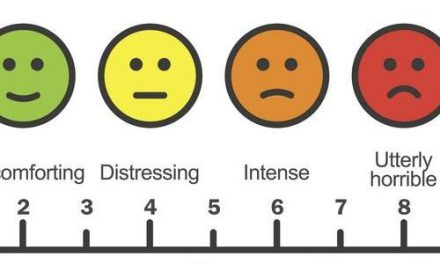As I mention from time to time, I’m self-studying the Russian language. Both my wife and I took German in high school, but after almost twenty years away from the language I wanted to try something new. For native English speakers, the Foreign Service Institute rates learning German as difficulty 2 out of 5 (roughly 750 classroom hours for basic proficiency), while Russian and most other Eastern-European languages rate 4 out of 5 (requiring 1100 classroom hours for just basic proficiency). Studying just by myself, without the formal strictures or pacing of a classroom setting, my progress has been pretty darn slow, but I’ve tried to keep consistent – working on the language at least once a day, if only for a few minutes.
Different programs (I’m currently using DuoLingo and Memrise, both phone applications) focus on different elements of Russian at different times, and that’s providing a well-rounded, if slightly confusing, look at the language. For example I learned how to say “извините” (I’m sorry) in the second or third lesson on one, while they waited until lesson 10 or 11 in the other to introduce the word. Occasionally I’m listening to a podcast, previously mentioned in this blog, which has great pacing for words and a good approach to learning, but of course does nothing to help with my ability to spell.
Memrise says that completing the basic “Russian 1” course should yield me knowing somewhere around 350 words. I try not to focus on that number too much because while in the grand scheme of things that’s not a big chunk of any language, trying to think of my current vocabulary makes that number seem huge. Spelling is my biggest hang-up right now, because most of DuoLingo’s lessons are “choose the word” from a list rather than forcing me to type out the answer, so I’ve learned what certain words look like in general rather than the individual parts that make them up (if that makes sense).
I’m not to the point where I could have a conversation, meaningful or otherwise, but I am learning more by the day. The basic sound of each letter came first, along with simple words like “Я” (I, me) or “и” (and), and cognates like “доктор” (doctor), “мама” (mother), and “папа” (father). Everyday words like “where,” “how,” and “what” (где, как, что) came next, with a few curveballs because why not – “яблоко” means “apple,” for instance, and is pronounced “ya-blu-ka.” Now I’m starting to get into more complex words that seem truly strange to my ears, even though they are common, every-day Russian words.
There are a few online resources I’m finding where I can pose questions (like when to use “ты” vs “вы” when saying “you”), which is proving to be a big help, Almost everyone is heads and shoulders more proficient than I, but seem to be happy to share their knowledge.
I really wish the local Junior College had a Russian language class, because I think the structure and scheduling, let alone the pacing, of a formal academic setting does well to focus and streamline language education, particularly when there are others to practice with. I bought little stickers that go on my computer keyboard so I can actually type in Russian without using an on-screen keyboard, but wow even still my fingers have no clue where to go for the different letters – I think I’ve said it before but the only letter that’s the same on both keyboards is “C.”
All in all I’m enjoying the practice, though of course I wish progress were faster. I actually managed to pick out a few words in a recent news broadcast I watched, which was a really encouraging feeling. Every little step!















